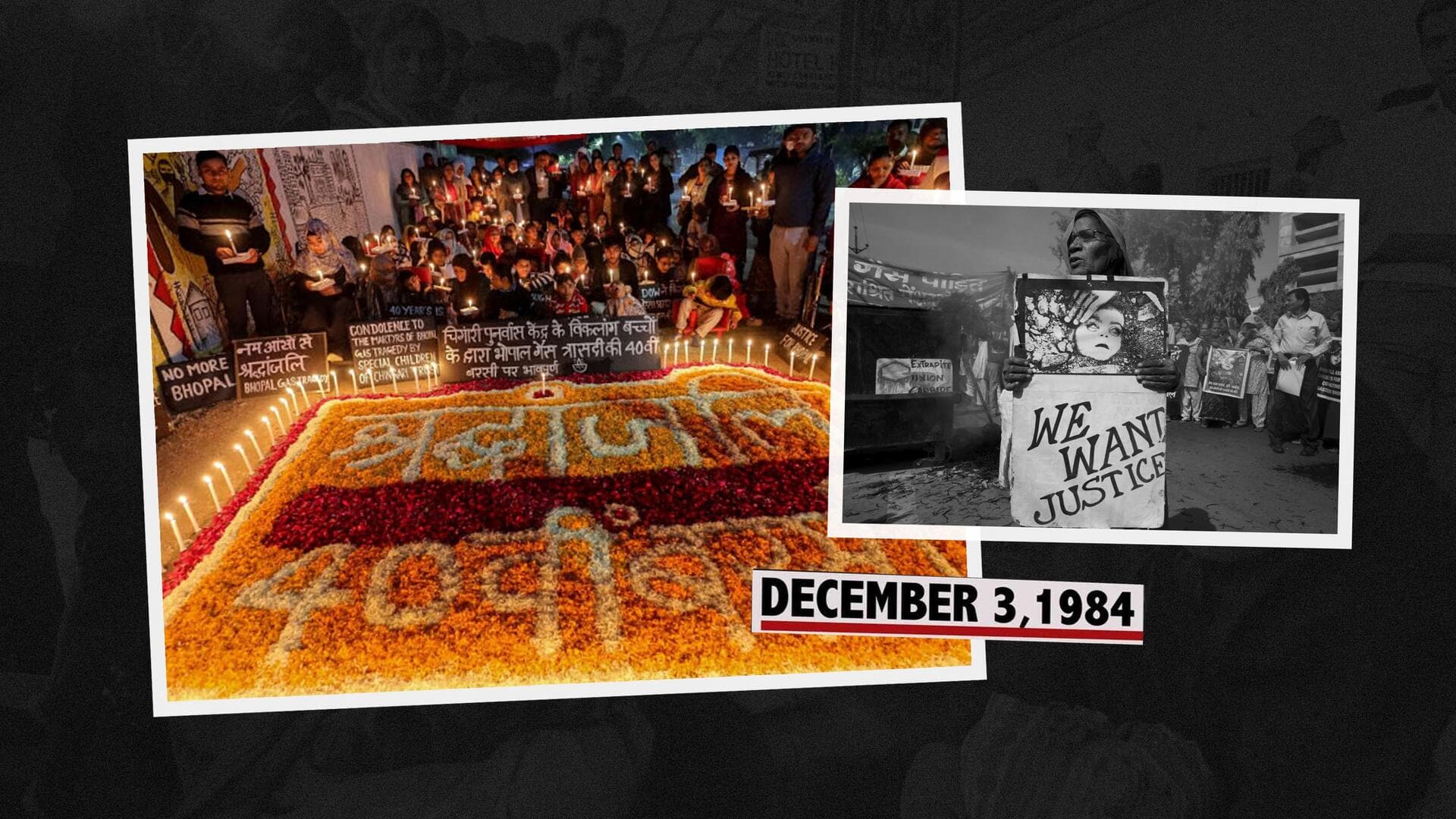
40 years of Bhopal gas tragedy: How it affected generations
What's the story
The Bhopal gas tragedy, which took place on the night of December 2-3, 1984, is the world's worst industrial disaster. A leak from Union Carbide's pesticide factory spewed highly toxic methyl isocyanate (MIC) into the air, exposing around five lakh people to the poisonous gas. The official death toll is 2,259 but estimates say up to 25,000 people have died from related conditions since.
Chronic conditions
Long-term health impacts of the Bhopal gas tragedy
The long-term health effects of the Bhopal gas tragedy continue to haunt survivors and their descendants. Chronic health issues like cancer and lung diseases are prevalent among those exposed to the toxic gas. The Sambhavna Trust reported a 28% higher mortality rate among victims than the average population. Women exposed to MIC have faced infertility and other reproductive health issues, further underscoring the disaster's lasting impact on public health.
Congenital disabilities
Bhopal gas tragedy's impact on future generations
The impact of the Bhopal gas tragedy has also been seen in children born to survivors. These children often have congenital disabilities. A study found that men born in Bhopal in 1985 have higher cancer and disability risks. An unpublished study by the Indian Council of Medical Research (ICMR) found a higher rate of congenital malformations in children born to mothers exposed to MIC during pregnancy.
Survivor accounts
Personal stories of the Bhopal gas tragedy survivors
Gas Devi, who was born during the disaster, suffers from severe health issues and calls her life a "living hell." Another survivor, Nathuram Soni, remembered the chaos of that night as he helped neighbors reach hospitals. In 1985, India passed a law for processing claims related to the disaster and settled with Union Carbide for $470 million in 1989. However, most survivors got only around ₹50,000 each after long waits.
Research findings
Studies reveal extent of Bhopal gas tragedy's impact
A July 2023 study of over 92,000 victims found that men above 21 were the worst affected by the Bhopal gas tragedy. Gas-exposed individuals were at a higher risk of death and shorter lifespans, with respiratory illnesses being the leading causes of death among victims between 1986-2000. The Sambhavna Trust Clinic studied data of over 24,000 patients over 16 years, confirming higher rates of respiratory diseases and depression among those exposed to MIC.
Intergenerational impact
Ongoing health issues in children born to gas-exposed parents
Rachna Dhingra of the International Campaign for Justice in Bhopal emphasized the persistent health problems in children born to gas-exposed parents. Rashida Bee, founder of the Chingari children's center established for those born disabled due to the disaster, said "Bhopal's tragedy has not stopped," with more second and third-generation children being affected. In March 2023, the Supreme Court dismissed petitions for more compensation, ruling against imposing higher liability on Union Carbide than initially agreed upon.